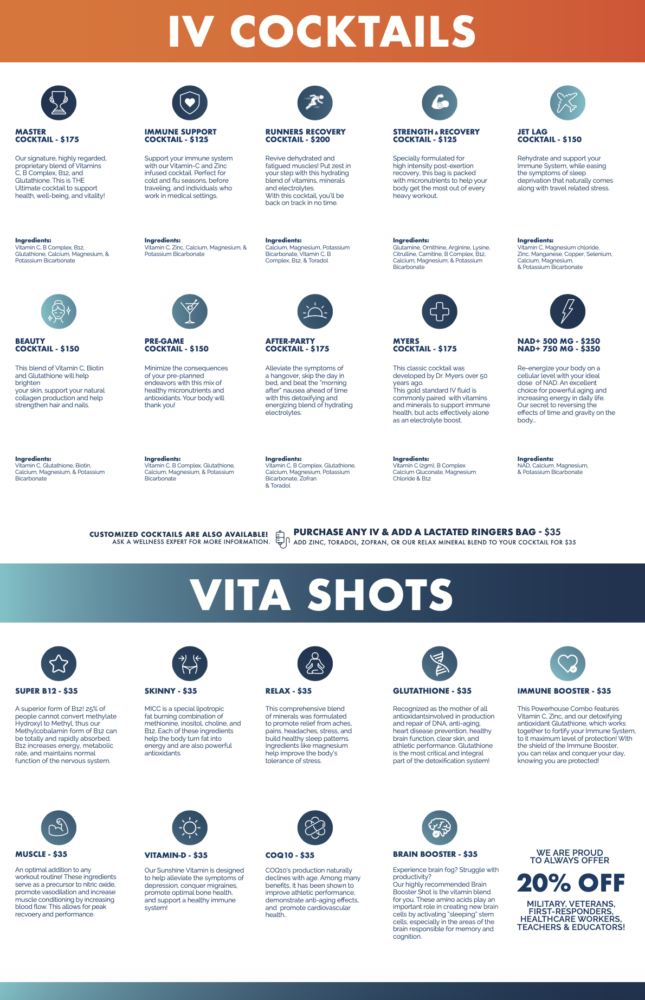Regulating blood sugar levels is of paramount importance, particularly for people with diabetes or those at an elevated risk of developing the condition. In conjunction with a balanced diet, regular physical activity, and prescribed medications, certain over-the-counter supplements can also aid in blood sugar control. Here’s a list of some of the most effective ones.
Best All in One: Glucose +
Our metabolic health depends significantly on the balance of energy production and consumption within our body. Glucose+, a meticulously designed dietary supplement, is dedicated to helping you maintain this delicate balance. Formulated with potent B vitamins and patented herbal extracts, Glucose+ aims to support normal glucose levels, enhance insulin sensitivity, foster liver health, and promote neurological functions.
Key to its effectiveness, Glucose+ considers essential aspects of metabolic health, including hormonal balance, nourishment, and control of glycation levels. A daily serving of three capsules, as suggested or directed by your healthcare practitioner, can potentially help balance your metabolic equation, thereby supporting your overall health.
Diving into its ingredients, Glucose+ is packed with key nutrients. It includes 55mg of Vitamin B6 as Pyridoxal 5-Phosphate, offering 3,235% of the daily value. This crucial vitamin supports brain development and function, and plays a significant role in protein metabolism.
The supplement also incorporates Chromium in the form of Cr Polynicotinate at 1,000 mcg, or 2,857% of the daily value. As a trace mineral, Chromium enhances the action of insulin, a hormone vital for the metabolism and storage of carbohydrates, fats, and proteins.
Further bolstering Glucose+’s formulation is Glucevia®, a patented extract from Fraxinus angustofolia, a type of ash tree, used at a strength of 1,000mg. This ingredient is known for its beneficial effects on glucose metabolism.
Glucose+ also includes another patented ingredient, GlucoDox®, at a concentration of 200mg. Paired with R-alpha lipoic acid at 100mg, these ingredients work together to combat oxidative stress and promote healthy glucose metabolism.
The supplement includes Benfotiamine (BenfoPure®), a derivative of vitamin B1, at 75mg. Benfotiamine is renowned for regulating metabolic pathways and helping prevent the formation of advanced glycation end-products, a risk factor for diabetic complications.
Glucose+ is free from unnecessary additives, containing only microcrystalline cellulose, hypromellose (capsule), and vegetarian leucine. As with any dietary supplement, it’s essential to consult your healthcare provider before incorporating Glucose+ into your regimen. Given the uniqueness of everyone’s metabolic needs, this product should be used alongside a balanced diet and healthy lifestyle to achieve optimal results.
Cinnamon
Research has shown that cinnamon can aid in blood sugar control by improving insulin sensitivity and reducing blood glucose levels. It does this by slowing the breakdown of carbohydrates in the digestive tract, which moderates the rise in blood sugar after meals. The typical dosage ranges from 500 mg to 2,000 mg per day.
Chromium
Chromium is a mineral that enhances the action of insulin and is involved in carbohydrate, fat, and protein metabolism. Some studies suggest that chromium supplementation might provide benefits for those with type 2 diabetes and insulin resistance. However, results are mixed, and more research is needed to confirm these findings.
Magnesium
Magnsium plays a crucial role in insulin regulation and glucose control. Several studies have indicated that low levels of magnesium are frequently seen in individuals with diabetes. Magnesium supplementation may improve insulin resistance and help lower blood sugar levels.
Alpha-Lipoic Acid
Alpha-Lipoic Acid (ALA) is a powerful antioxidant that can help reduce inflammation and oxidative stress, conditions often seen in individuals with diabetes. ALA has also been shown to increase insulin sensitivity and may decrease blood sugar levels.
Berberine
Berberine is a compound found in several plants and has been used in traditional Chinese medicine for centuries. Modern research suggests that berberine can improve insulin sensitivity and lower blood sugar levels to a degree comparable to some pharmaceuticals. It should be noted, though, that berberine can have digestive side effects for some individuals.
Bitter Melon
Bitter melon contains at least three active substances thought to have anti-diabetic properties. These substances either work individually or together to help reduce blood sugar levels. Bitter melon can be taken in the form of capsules or as a juice.
Fenugreek
Fenugreek is an herb that has been shown to improve blood sugar control in people with diabetes, likely due to its high fiber content which slows the absorption of carbohydrates. It can be consumed as a supplement, used in cooking, or taken as a tea.
Green Tea
Green tea contains a polyphenol compound known as EGCG, which has been shown to increase insulin sensitivity and regulate blood sugar levels. It can be consumed as a beverage or in the form of a supplement.
Why Go Over the Counter
Maintaining balanced blood sugar levels is crucial for overall health and well-being, and especially for those with conditions like prediabetes or diabetes. While lifestyle changes such as a balanced diet and regular exercise are key to managing blood sugar levels, some individuals may choose to supplement these efforts with over-the-counter (OTC) supplements for several reasons:
Adjunct to Diet
Supplements can provide concentrated doses of specific nutrients or compounds that are known to help regulate blood sugar and may not be easily achievable through diet alone. For instance, certain supplements contain chromium or cinnamon, which have been associated with improved blood sugar control.
Convenience
Over-the-counter (OTC) supplements are widely accessible and easy to incorporate into a daily routine. They offer a convenient way to get beneficial nutrients and compounds that can support blood sugar regulation.
Complementary to Prescription Medications
While not a substitute for prescribed medications, certain supplements may help enhance the effectiveness of these drugs when used in conjunction. Always consult with a healthcare provider before starting any new supplement, especially if you’re already on prescription medication, to avoid potential interactions.
Alternative or Holistic Approaches
Some people prefer natural or holistic approaches to managing their health. They may opt for supplements derived from natural sources as part of their strategy to control blood sugar levels.
Additional Health Benefits
Besides supporting blood sugar regulation, many OTC supplements offer other health benefits, such as anti-inflammatory or antioxidant effects, which can support overall health.
It’s essential to note that while OTC supplements can be beneficial, they’re not a standalone solution for blood sugar control. Regular monitoring of blood sugar levels, maintaining a healthy diet, regular physical activity, and regular consultations with a healthcare provider are vital. And remember, just because a product is available over the counter doesn’t guarantee its safety or effectiveness for everyone. Always talk to a healthcare provider before starting any new supplement regimen.
Natural Strategies for Lowering Blood Sugar Level
Managing blood sugar levels is critical, particularly for individuals with diabetes or those at risk for developing this condition. While there are numerous medications available for regulating blood sugar, natural methods can also be highly effective. This article outlines several ways to naturally lower your blood sugar levels.
Regular Exercise
Physical activity is an effective method of reducing blood sugar levels as it encourages muscle cells to absorb more glucose, thereby lowering the amount present in the bloodstream. Exercise also improves insulin sensitivity, making the body’s insulin more effective. It’s essential to find an activity that suits your lifestyle and fitness level – this could be anything from walking or cycling to more intensive workouts like swimming or weight training.
Dietary Changes
Diet plays a critical role in blood sugar management. Prioritizing foods with a low glycemic index (GI) is a good start. Low-GI foods, such as whole grains, legumes, fruits, and non-starchy vegetables, are digested more slowly, causing a slower, lower rise in blood sugar.
Increasing fiber intake can also slow the digestion and absorption of carbs, leading to a more gradual rise in blood sugar. Both soluble and insoluble fibers are important, but soluble fiber specifically can help lower blood sugar levels.
Portion Control
Keeping an eye on portion sizes can help prevent overeating and spikes in blood sugar. Regularly consuming large quantities of food, even if it’s healthy, can lead to weight gain and higher blood sugar levels over time. Using smaller plates, checking food labels for serving sizes, and being mindful of restaurant portion sizes can help keep your intake in check.
Hydration
Staying hydrated can help regulate blood sugar levels. Drinking enough water helps your kidneys flush out excess sugar through urine. It also rehydrates the blood, lowers blood sugar levels, and reduces the risk of diabetes. Note, however, that this refers to water and non-caloric beverages. Sugary drinks will increase blood glucose levels and can lead to weight gain.
Stress Management
Stress can impact blood sugar levels as it triggers the release of various hormones that can elevate blood glucose. Techniques such as yoga, meditation, and mindfulness can reduce stress and have a positive effect on blood sugar control.
Adequate Sleep
Quality sleep is essential for overall health and blood sugar control. Lack of sleep increases cortisol levels, a stress hormone that can raise blood sugar levels. Sleep deprivation can also impair insulin sensitivity, contributing to higher blood sugar levels.
Regular Check-ups
Monitoring your blood sugar levels at home using a glucose meter or continuous glucose monitor (CGM) can help you understand how different activities, foods, and behaviors affect your blood sugar levels. Regular check-ups with your doctor will also allow you to stay on top of your health and make any necessary adjustments to your lifestyle.
Wrapping up
While the methods mentioned above are helpful in naturally reducing blood sugar levels, it’s important to note that they do not replace the need for medical advice or treatment. If you have been diagnosed with diabetes or pre-diabetes, continue to follow your doctor’s advice, which may include medication, regular check-ups, and specific lifestyle adjustments. These natural methods can be used in conjunction with medical treatment to optimize blood sugar control and overall health. As with any major lifestyle change, consult with a healthcare professional before beginning a new regimen.
Supplementation can play a part in managing blood sugar levels, but it’s important to understand that supplements are not a substitute for a healthy diet, regular exercise, or prescribed medication. Always talk to your healthcare provider before starting a new supplement regimen, as some can interfere with medications or have side effects. Managing blood sugar levels requires a comprehensive approach that considers all aspects of your lifestyle and health. And remember, what works best will depend on individual factors such as your body’s unique response to different treatments and your overall health status.







